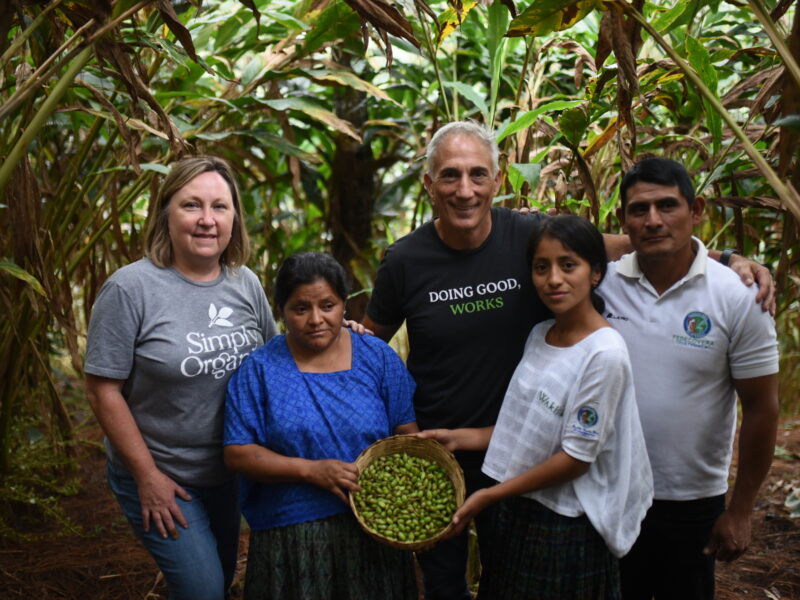Organic watermelon is in season and it’s the perfect food to consume to stay hydrated this summer. Aside from the delicious taste of watermelon, and there are six health reasons to eat it too. Research shows watermelon’s flesh, seeds, sprouts, and leaves contain compounds that may provide protective benefits.
Some of watermelon’s health benefits:
- Helps with weight management
Watermelon’s fiber and water can curb appetite, potentially thwarting the overeating that contributes to undesirable weight gain.
In a study of 33 overweight or obese adults, investigators noted that consuming two cups of watermelon daily over four weeks led to noteworthy decreases in body weight, body mass index, and waist-to-hip ratio. In contrast, a separate group consuming similar calorie low-fat cookies experienced an increase in body fat during the same duration.
2. Enhances cardiovascular well-being
Packed with compounds that can counter inflammation, deliver antioxidant effects, and enhance lipid profiles, watermelon is a heart-friendly option. L-citrulline, a precursor to the essential amino acid L-arginine, supports protein synthesis. The antioxidant-rich carotenoid lycopene found in watermelon has potential cardiovascular-protective properties. And watermelon consumption is linked to elevated nitric oxide synthesis, a vasodilator crucial for averting blockages.
3. Watermelon potentially fights against cancer
By embracing antioxidant-rich foods, like watermelon, individuals can bolster their body’s defenses against cancer. Watermelon’s L-citrulline content and nitric oxide-boosting effects have shown the potential to slow cancer cell proliferation in certain animal studies. The regulation of DNA repair enzyme expression in mice further suggests its cancer-fighting potential.
4. Alleviates ulcerative colitis
Watermelon may hold promise for those with ulcerative colitis, an inflammatory bowel ailment with far-reaching digestive tract inflammation. The potential for watermelon to boost antioxidant activity and alleviate inflammation offers a glimmer of hope for those trying to managing ulcerative colitis, which is associated with a higher risk of colorectal cancer, rheumatoid arthritis, ankylosing spondylitis, and psoriasis.
5. Nourishes the skin
Antioxidants present in watermelon guard against sun damage and oxidative stress, potentially reducing wrinkles and mitigating aging effects linked to UV exposure.
6. Plays a role in athletic performance
For athletes, watermelon is as a natural reservoir of L-citrulline, which could bolster L-arginine bioavailability and nitric oxide production, thereby influencing exercise performance. Various studies have documented the success of L-citrulline supplementation in enhancing exercise outcomes and recovery.
In a study involving 22 athletically trained males, oral L-citrulline supplementation over seven days substantially boosted plasma L-arginine levels. So completion time for a four-kilometer bicycle race decreased by 1.5% compared to a placebo group. Athletes also reported reduced post-exercise muscle fatigue. (But cyclists don’t need to carry watermelons during their rides to reap these benefits.)
Nine Reasons to Choose Organic Watermelons
Although conventional watermelons are generally considered to be one of the safer fruits to consume conventionally, their juicy flesh is shielded by a thick rind. Surprisingly, the USDA Pesticide Data Program discovered 28 pesticide residues on this beloved fruit.
A thorough outer washing can remove some of these pesticides. But pesticides used in conventional farming are systemic – no amount of cleaning can eliminate chemicals from your conventionally grown fruits and vegetables, because they’re in the produce. They can infiltrate the soil and travel through the plant’s roots, permeating the entire fruit.
The solution? Choose organic watermelon.
Here are 9 reasons to choose organic:
- Reduced pesticide exposure: As mentioned above, organic watermelons are cultivated without synthetic pesticides and herbicides, minimizing your exposure to potentially harmful chemicals commonly used in conventional farming.
- Higher nutrient density: Organic farming practices often lead to soil enrichment, so watermelons with higher levels of essential nutrients, vitamins, and minerals, which contribute to better overall nutrition. Many organic crops provide more nutritional value than their conventional counterparts. For example, researchers found that organic milk contains significantly higher concentrations of heart-healthy fatty acids than milk from cows on conventionally managed dairy farms.
- No GMOs or synthetic growth hormones: Organic watermelons are grown without synthetic growth hormones or genetically modified organisms (GMOs), ensuring a more natural and unaltered fruit.
- Enhanced flavor: Organic watermelons are typically allowed to ripen more naturally on the vine, leading to improved taste and flavor, compared to watermelons picked prematurely for conventional distribution.
- Support sustainable farming: Choosing organic watermelon supports environmentally friendly and sustainable agricultural practices, including soil health preservation, reduced water pollution, and increased biodiversity.
- Antioxidant richness: Organic watermelons often contain higher levels of antioxidants like vitamin C and lycopene, which have been linked to various health benefits, including immune support and heart health. A comprehensive review of earlier studies found substantially higher levels of antioxidants and lower levels of pesticides in organic fruits, vegetables and grains compared with conventionally grown produce.
- Reduced environmental impact: Organic farming practices prioritize ecological balance and resource conservation, which leads to less harm to surrounding ecosystems and a smaller carbon footprint.
- Allergen and sensitivity consideration: Individuals with food allergies, chemical sensitivities, or preservative reactions may experience fewer symptoms when consuming organic watermelon due to the absence of synthetic additives.
- Preservation of soil health: Organic farming methods prioritize soil health through practices such as composting, crop rotation, and reduced soil disturbance, ensuring the long-term sustainability of agricultural land.
By choosing organic watermelon, you’re not only making a healthier choice for yourself but also supporting environmentally responsible and sustainable food production methods.









